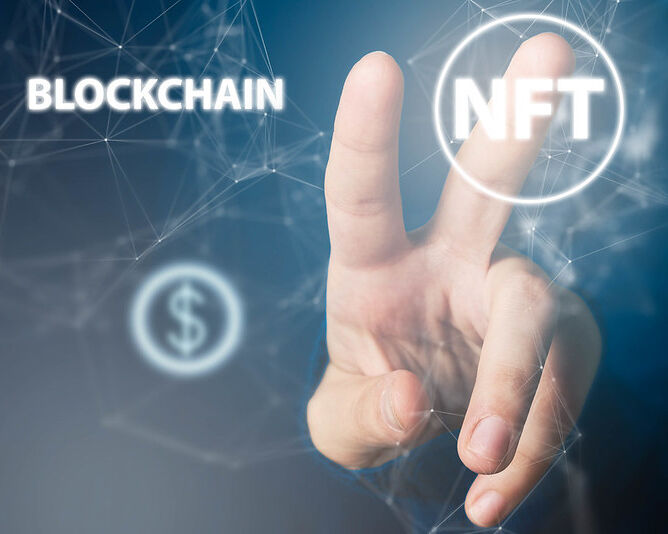Whether you found out about them through the news, Twitter, or Saturday Night Live’s rap song, there is a good chance you’ve heard of NFTs. Short for non-fungible (meaning not replaceable) tokens, they have taken the Internet by storm. They are one-of-a-kind digital works of art that owners can trade, purchase, or sell. At least, they’re supposedly one of a kind.
However, as artist Corbin Rainbolt can attest, some artwork has been sold without the consent of the artist. Rainbolt said that he blocked the two accounts he found selling his artwork (which are usually paintings of extinct animals and landscapes), but it is not impossible that there are more out there. How many artists have had this happen to them without finding out about it? As NFTs increase in popularity and significance, there is a good chance that this problem won’t just go away.
Well, that may be a problem, but it is fixable, right? Isn’t there something good about NFTs? This article has no intention of being one-sided, so let’s take a look at some of the benefits of non-fungible tokens. For artists, work can be difficult to find. After all, the phrase “starving artist” had to come from something. With NFTs, digital artists have found a popular way to make significant profits off of their artwork. An artist by the name of Beeple recently sold one of his NFTs for 3.5 million dollars (1)! The money that can be gained from claiming a work of art is a “limited edition” has now combined with the accessibility of the Internet. It seems utterly ingenious, right?
Well, I’m not done yet. The above example of Rainbolt not being paid for his artwork wasn’t some unbelievable and unforeseeable event. With NFTs, there is no requirement that a person has to attach their real name to any transactions. Also, even if someone didn’t make a work of art themselves, they can claim that it’s theirs if they attach a token to it. So, it’s going to take more than a few simple blocks to prevent this from happening in the future.
Artists getting compensation for their work is certainly a major concern, but NFTs have an even bigger, global problem tied to them. A few years ago, news broke that the Intergovernmental Panel on Climate Change gave the world until 2030 to significantly cut back on carbon emissions. If we don’t, the world may soon be unrecognizable. So, as the existential horror of the climate crisis looms over everyone’s minds, it is not anywhere near reassuring to hear that NFTs are extremely bad for the environment.
“Mining” (the name of the digital process by which records of cryptocurrency and non-fungible token transactions are kept) NFTs requires a large carbon output. The same thing goes for Bitcoin, which uses a similar system. The network of computers that decide whether transactions are valid are said to use up the energy of a small country. Specifically, Ethereum (a cryptocurrency system that conducts the sales of NFTs) is consuming the amount of energy used by the entire country of Ireland, according to one estimate. This is all due to the amount of energy it takes for computers to run the algorithms that make NFTs possible. You can’t keep something on the internet rare without a complex system, and “mining” is dangerously complex. It seems that both real world and digital mining are catastrophic for the environment.
To be fair to Ethereum, they have stated that they plan to move to a system that would reduce this enormous energy consumption. However, no clear plans have been given, and Ethereum has been saying this for years. Until the promised Ethereum 2.0 is finally launched, it is important that all NFT buyers and sellers understand what they are getting into.
I don’t write this article to shout, “The sky is falling!” Ethereum 2.0 could be launched very soon and all issues involving artists having their art stolen could be resolved even faster. Yet, until they are, it is important to acknowledge that they are there. SNL may not have had a rap verse detailing the impact that NFTs have on the environment, but that doesn’t mean that there is nothing to talk about.

